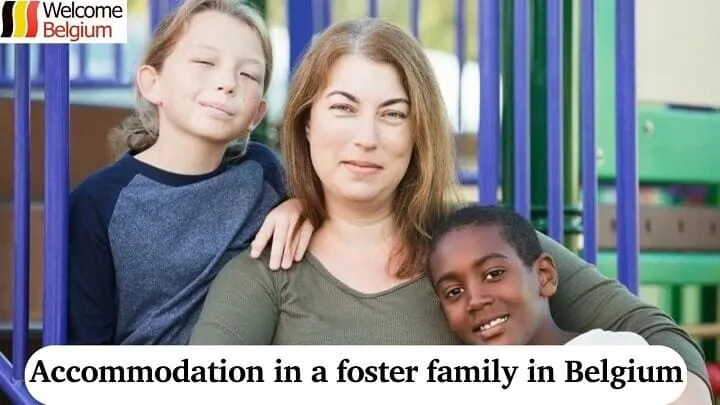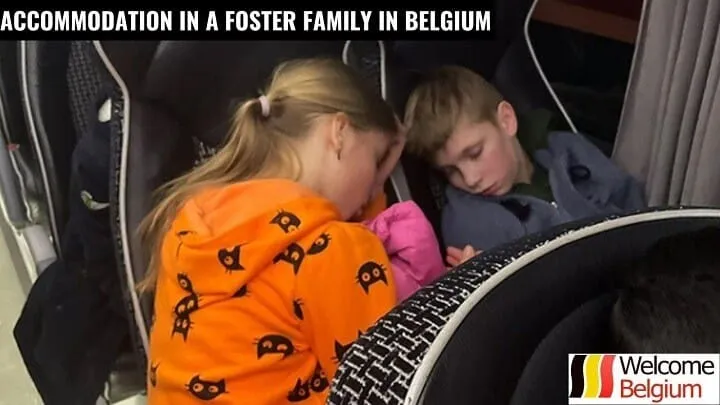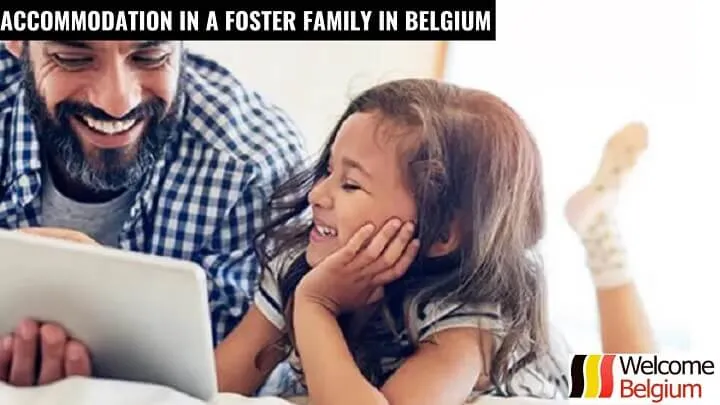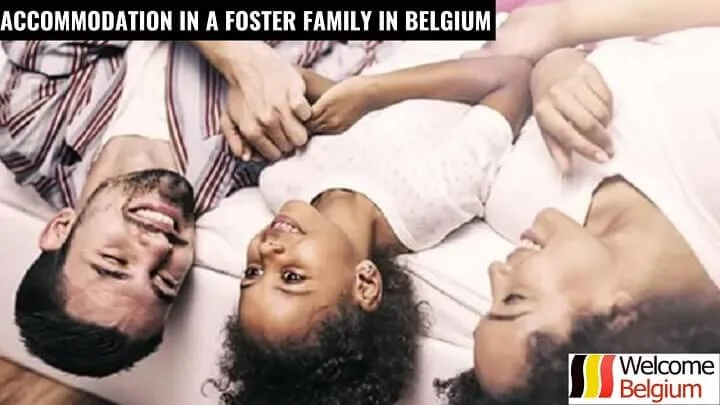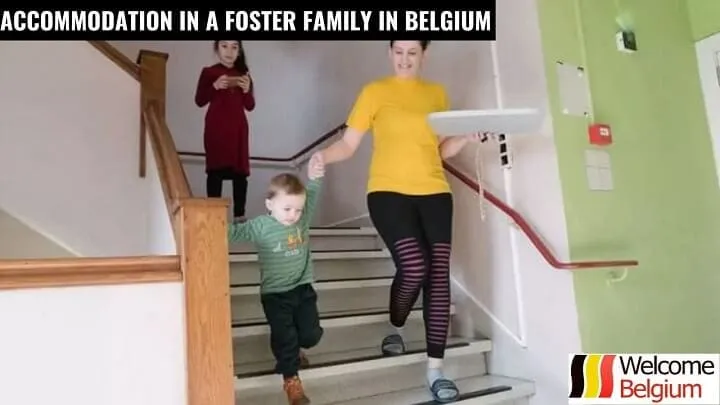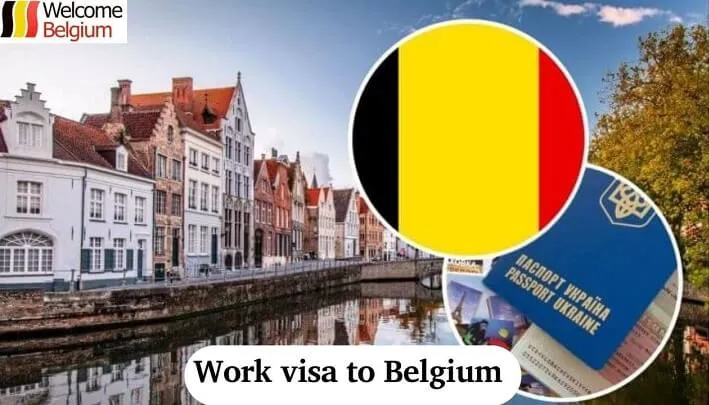Moving to another country as a refugee is a complex procedure. However, it is even more difficult if minor children themselves end up in another state without guardians or parents. For such cases, the Belgian government has created special programs. They allow you to quickly find a shelter, a place for permanent or temporary housing. In the latter case, it is possible to live in a foster family in Belgium, which improves the child’s adaptation to the new social environment.
[lwptoc]Status of refugee children in Belgium
If a child enters the territory of Belgium without parents or guardian and he is not yet 18 years old, he is granted unaccompanied refugee status. at the first stage, you need to contact the OCMW / CPAS representatives. This can be done on the official website of the organization or through volunteers who meet refugees at railway stations, international airports, bus stations. After the first admission and interview, a guardian is appointed who helps to arrange minor children in foster families in Belgium, organizes studies, and another place of residence.
Why do I need to register for the first time:
- Providing asylum. For children, this procedure is simplified, after the adventure, you can start issuing a residence permit.
- State guardian. This person will help you in obtaining refugee status, finding an option to live with a foster family in Belgium. The guardian has the right to contact a lawyer to resolve disputes.
- Accommodation options. you can stay at a reception centre, a refugee camp or choose a Belgian family that agrees to take care of you.
- Communication with family. The state is obliged to provide you with ways to communicate with a family that is not currently in Belgium.
If you have questions or difficulties at the first stage, you can contact one of the OCMW / CPAS or Fedasil representatives. In addition, there are 24-hour support telephones – 101 and 112. For refugee children, they provide advice, urgent medical, psychological or financial assistance.
Important: under Belgian law, vagrancy is a criminal offence. Therefore, on the very first day of your stay in the country, you need to contact the state authorities.
Accommodation options
Belgian human rights organizations can provide several accommodation options for underage refugees. Most often they stop at a foster family when parents become guardians. If the circumstances make it convenient for you to live in a shelter or reception center, these options are also considered. The main goal is to provide the child with maximum comfort in the country.
in a foster family
This is the best way for social adaptation to the Belgian society. According to local law, the foster family is the native inhabitants of Belgium or citizens who have received a residence permit in the country. This issue is resolved together with the state guardian and a lawyer. Often refugee children choose to live with a foster family in Belgium with relatives or close acquaintances. Before paperwork, future guardians are tested to see if they can provide a material and social environment for the child, whether the apartment or house meets the living conditions.
What will living in a new family look like:
- It can be a full-fledged family or one person.
- The new parents are responsible for the refugee child in the same way as for native Belgian children.
- Mandatory attendance at kindergarten, school. Guardians responsible for the state of physical and psychological health.
- Joint visits to events, excursions. The task of new parents is to show all the advantages of living in Belgium.
To monitor the level of residence in the Belgian foster family, it is periodically visited by a state guardian. Through it, you can organize communication, video meetings with real parents. If communication is lost with the latter, you can try to restore it via OCMW / CPAS.
Important: violation of living conditions, deterioration in the quality of life – these are the reasons to take a child from a foster family in Belgium.
To the shelter
Asylum is a mandatory procedure for all refugees, including minors. After arriving in the country, you need to contact the immigration service, volunteers can help with this. The refugee child is then sent to the OCMW / CPAS unit. An interview takes place here, a conversation with an interpreter is possible if the young immigrant does not know the national Belgian language. The preparation for the interview is handled by a public guardian and a lawyer. During the conversation, the reasons for coming to the country, your identity and age, the coordinates of your real family will be clarified.
The interview will take place at the CGRS office. This will be an experienced person who will help you tell your story correctly. It is not recommended to lie, exaggerate or downplay facts from life. To create a comfortable environment, your trusted person – a relative or close acquaintance living in Belgium – may be present at the interview.
After the conversation, the refugee child is granted state asylum to live with a Belgian foster family. The official decision is in writing and will be sent to your guardian and lawyer. They may also consider the norms of the Dublin Agreement if your parents live in one of the EU countries. Under this agreement, it is possible for the child to move to the country of permanent residence of his parents.
Tip: During the interview, the CGRS worker needs to provide proof of facts. These can be documents, certificates or extracts.
At the reception center
At the first stage, a refugee child lives in a reception center. This is a special place in which immigrants are provided with housing and comfortable living conditions. For the first 30 days you will live in a distribution camp, then you will be sent to one of the permanent Belgian refugee centers Fedasil. This will happen after the appointment of a public guardian. In the reception center you can not only live, but also get an education, participate in events, get to know the social life in the country.
Accommodation features:
- You will live with a small group of peers in a separate wing of the building.
- A team of psychologists and educators works here to help you adapt to a new environment.
- For children under 15 there is additional care.
- A full social life – attending school, sports and creative sections, excursions, events.
If you are not satisfied with the living conditions in the reception center, you can always seek help from local specialists. They will help you to solve the problems that have arisen, perhaps they will look for options for you to live in a foster family in Belgium. An alternative is to leave the reception center for 2-3 days.
Important: after reaching the age of 18, you will be transferred to an adult camp, help you get a higher education or find a job.
Turned 18, what to do
According to Belgian law, the age of majority comes after 18 years. Before this time, it is recommended to apply for asylum or start the procedure for obtaining a residence permit. Otherwise, after the reception center you will not have the right to stay in Belgium. An alternative is to arrange an asylum for adults, which is much more difficult. The state deprives you of a guardian and you must do all the documentary procedures yourself.
With new responsibilities, you will have new rights. An adult refugee can count on social payments from the state, assistance in renting housing. However, it is not necessary to cut ties with the foster family in Belgium. These people will help you with further arrangement in the country.

